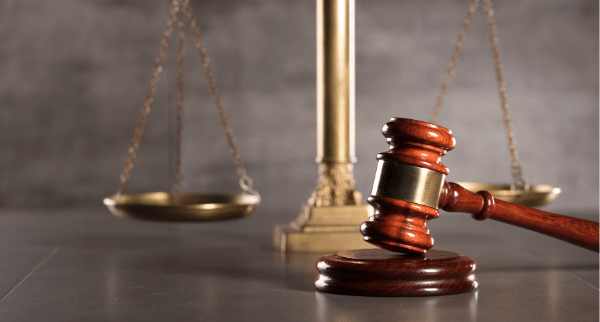In one of my recent blogs, I wrote about why you should have a will, and why a lawyer should prepare one for you. With the start of November upon us, and with it being “Make a Will” month, I recommend you re-read my blog on the topic.
But when you consider doing your will, you should also find the other side of the equation – doing your Powers of Attorney.
As I said in my “Will” blog, you have worked hard to accumulate your assets and to keep your debts in check as best you can. Doing a will to govern your affairs once you pass away is very prudent, and it gives your loved one’s peace of mind. But you also need to consider what may happen to your well-being and your assets/liabilities if you become unable to make decisions for yourself, but you are still alive. This period of “incapacitation” can last a few days or weeks, or it can last months or years. If you become unable to make decisions for yourself, but you have done your powers of attorney with the help of a qualified lawyer, you have decided a) who will take care of your property, and b) who will take care of you.
You will notice that I use the plural form of powers of attorney. That’s because there are two different documents, and you should have both of them prepared for you:
A Continuing Power of Attorney for Property; and, A Power of Attorney for Personal Care
A Continuing Power of Attorney is:
A Continuing Power of Attorney for Property is a document that sets out your express wishes and instructions regarding your property and financial affairs. You decide who will manage your property (this person is the “attorney”), when their power takes effect, what the attorney can and cannot do, and whether the attorney will be paid for their services.
As an aside, although we use the word “attorney,” this does not mean the person you choose has to be a lawyer. In Canada, we do not usually use the word “attorney” to mean lawyer – we use the British terms “barrister” and “solicitor.” So, when we use the term “attorney” when talking about powers of attorney, we mean the person you have chosen.
Whom you choose is really up to you. It should be a responsible adult whom you know is good at managing money, financial matters, and can make prudent decisions for you in regards to such issues. For married or common-law couples, usually, they will nominate each other. For a single person, it’s often a sibling or close friend. But what if the person you have chosen is incapacitated at the same time as you are, or is otherwise unable to act as your attorney? Whom would you select next? If you have a child, and the child is a responsible adult, that’s a good option. But what if you have more than one child? Do you have to pick them both? Not necessarily. But what if you don’t select all of your children? Will this trigger an intra-family fight that could get nasty and possibly litigious? These are some considerations that a lawyer will discuss with you.
Next, when does the power take effect? Is it immediately upon signing the document, or only if you are deemed incapacitated? If it’s the latter, who defines when you have become incapacitated? What if you regain your “capacity” after losing it? All of this will be discussed in detail with your lawyer, who will guide you and advise you.
Then comes the issue of what property is to be managed, the scope of their powers, and whether they are to be paid for being your attorney. They may be good at paying monthly bills and putting money in the bank, but can they manage your investments? Are they aggressive or conservative investors? What about if the need arises to re-finance or sell your home? Can they make wise decisions in this regard? Are you okay with them knowing all aspects of your finances – good and the bad? See – not as simple anymore, is it?
A Power of Attorney for Personal Care is…
Now comes the other document – the Power of Attorney for Personal Care. Some people call it the “Living Will.” It will set out the important decisions to be made regarding the management of your health and well-being.
Again, whom you select to be your attorney is very important. If you’re married or in a common-law relationship, the decision is easy. But what if you are not, or you need to select an alternate/substitute attorney. Who then? Can your sibling or siblings, your child or children, decide to use extreme measures to keep you alive if they see you suffering, or the more difficult decision to “not revive” you should you slip towards death? It helps my clients immensely when, as an objective third party, I can have these very personal discussions with them, without the emotional attachment of family or friendship interfering with deciding what is the best decision for them.
Another thing –the person you select for being your attorney for personal care does not have to be the same person you selected to be your attorney for property. However, practically, it often is, and it may also be an excellent idea to do so.
As with the Power of Attorney for Property, you will need to set out when it becomes effective. What limits should the person have regarding their decision making (such as whether or not to keep you at home with in-home services, as opposed to placing you into a care facility, what treatments you want, and which ones you don’t want). Also, whether heroic measures are to be used (or not to be used), and what is meant (and not meant) by that term “heroic measures.”
Once again, all very important decisions that need to be made after careful consideration.
Last point. What if you don’t do a power of attorney? Your property will not go to the government, and you will not be placed in a run-down care facility. Instead, your loved ones may have to needlessly spend time and money to apply to the court to get the authority to make these decisions.
In a number of cases, there are rival factions in a family dynamic – on one side, you may have the ones who love spending money and want to keep you alive no matter what; on the other hand, you have the ones who are stingy or in need of money for themselves, and are ready to “pull the plug” on you at the first opportunity.
This can be unsettling, but it does happen.
So, whether you are 18 years old or 88, don’t let others decide for you who should make decisions for health, welfare, and property when you are unable to do so. Make an appointment with a lawyer to do your Powers of Attorney – NOW!

